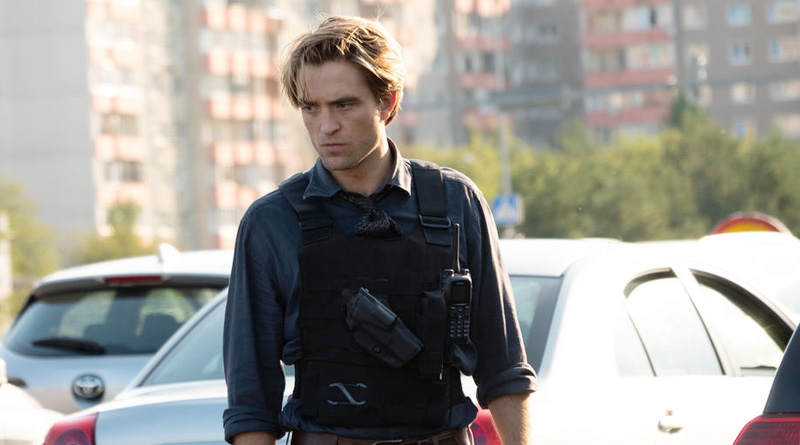Tenet (2020) Review
Before I proceed any further, this is a spoiler-free review. That means I won’t be discussing any specific plot points related to Tenet.
The 2020 summer movie season or what’s left of it, arrived unusually late than any other years before. All thanks to the ongoing COVID-19 pandemic, that is. With almost all of this year’s big blockbusters forced to reschedule to a later date, Warner Bros. took a huge gamble of rolling out their US$200 million-plus Tenet in overseas markets over 70 countries worldwide beginning August 26, leaving the eventual U.S. release — albeit in select cities — to open on September 3 instead. The latest Christopher Nolan movie itself has already been postponed twice before — first on late July and again, to mid-August.
Having finally managed to watch Tenet during an early IMAX screening, I was counting on Christopher Nolan to deliver another cinematic masterpiece. Something that (all) of us moviegoers regardless of casual and die-hard fans needing it more than ever to escape from the current harsh reality.
And he did that admirably, particularly the way he favours entirely on practical effects over CG and with no green screen whatsoever — no doubt uncommon filmmaking practise and a rarity for today’s Hollywood big-budget blockbusters. Watching Tenet on IMAX reminded me how much I missed the huge spectacle on the big screen after dreaded months of waiting for a new Hollywood blockbuster.
Huge setpieces including the heavily-promoted plane crash sequence (yes, Nolan and his crew actually went full Joel Silver mode in blowing up a real Boeing 747) is a sight to behold. The car chase scene — also another attention-grabbing moment partially seen in the movie’s trailers — is impressively choreographed with enough verve, showcasing Nolan’s excellent staging where he chooses to perform them for real in-camera. If Tenet is viewed solely from its technical point-of-view, Nolan and his crew deserve credits for giving their all, making this a must-see on the biggest screen possible.

The story — credited solely to Christopher Nolan himself — boasts a fascinating setup that has been synonymous with his high-concept original movies. Here, John David Washington plays an operative in charge of a globe-trotting mission to prevent World War III and getting himself involved with Kat (Elizabeth Debicki), the estranged wife of Andrei Sator (Kenneth Branagh). The latter plays a Russian antagonist straight out from the James Bond playbook. It comes to no surprise anyway, given Nolan’s fascination with the 007 series, where he had previously slipped in some of the Bond influences in his 2010 mind-bending sci-fi blockbuster Inception ten years ago.
Like Inception, Nolan has again combined his love for espionage genre with his recurring themes of time and memory. Or more specifically in Tenet, he gave us a refreshing concept of time inversion. On paper, a story about the world where certain characters can manipulate time through backward motions (his 2000 movie Memento quickly comes to mind) both literally and figuratively — e.g. shooting bullets back into a gun, cars travelling and flipping in reverse — sounds cool enough.
But watching Tenet unfolds in its entirety is a different story altogether — at least to me — as Nolan’s typically labyrinthine plot isn’t as involving as I expected it to be. Don’t get me wrong, I love all of Nolan’s movies in the past ever since he made his promising 1998 black-and-white debut in Following.
Tenet, in turn, is the first time I felt he gets too carried away with his own concept. Over the course of its epic 150-minute running time, the movie jumps from one scene to another as Nolan impresses with all the technicalities. And yet, the fundamental element of this movie — the plot — is more baffling than ending up feeling intrigued. It’s almost as if I’m watching The Matrix Reloaded (2003) all over again, particularly during the confusing scene involving the introduction of The Architect.

In Tenet, Nolan does include the usual exposition to try making his story accessible and interesting — something that he’s previously good at in two of his among most complex movies to date: The Prestige (2006) and Inception. Even so, his latest movie feels strangely hollow and coldly detached. So detached to the point that Nolan’s otherwise great acting ensemble fails to connect emotionally, beginning with John David Washington’s (2018’s BlacKkKlansman) lead performance as the main protagonist of the movie. While he does exude some charisma in the role of an operative, it’s hard to make me care what he has been through over the course of his mission.
In the past, Nolan’s protagonists — from Guy Pearce’s amnesiac investigator in Memento to Christian Bale’s Bruce Wayne/Batman in The Dark Knight trilogy (2005-2012) as well as Leonardo DiCaprio’s tormented Dom Cobb in Inception and Matthew McConaughey’s dedicated father/astronaut role in Interstellar (2014) — are all exceptional characters with a compelling emotional arc. By comparison, John David Washington’s role feels like he’s being written merely as a pawn of the movie who simply goes through the motion.
As for the rest, Robert Pattinson is largely forgettable as the protagonist’s partner and fellow operative, Neil. Only Elizabeth Debicki and Kenneth Branagh made quite an impression in their respective roles.
For all the technical achievements and Nolan’s potentially captivating time-inversion concept, Tenet lacks the heart and soul to qualify as among the best movies in his illustrious filmography.





